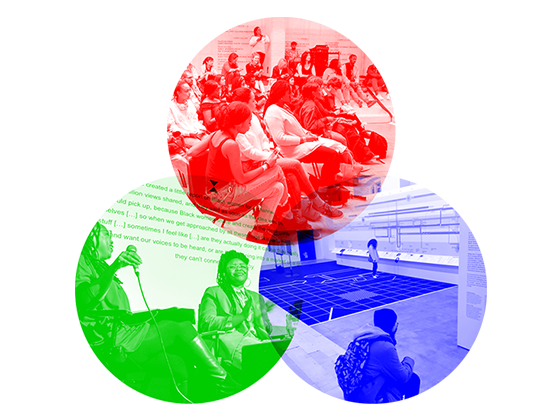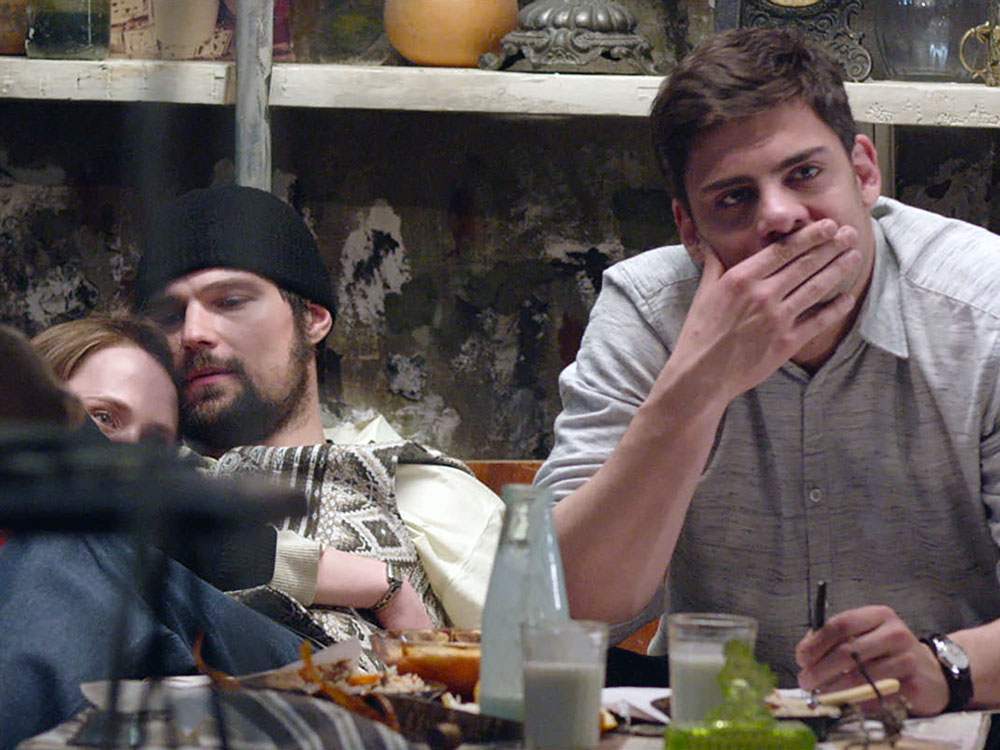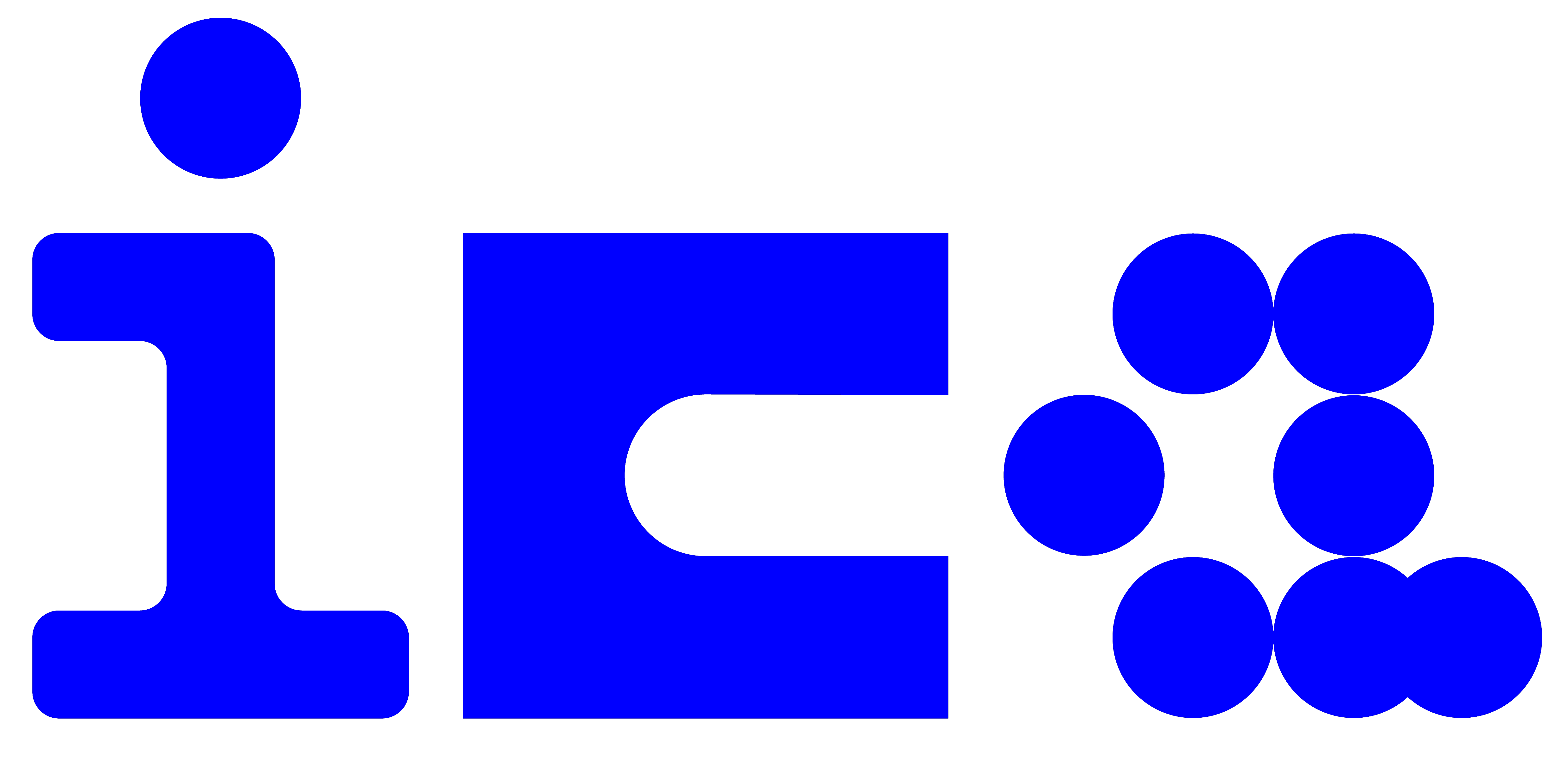The ICA will be on general strike on Fri 20 Oct. Read more
Stefan Kalmár, Director of the ICA interviewed by Andrew Durbin, editor of frieze magazine
Andrew Durbin: I want to know what the ICA is doing in response to the disruption. As you often mention, the ICA was founded in the same period as the NHS, at a hopeful moment for the UK, and it’s always been motivated by a sense of public responsibility towards the arts and its communities.
Stefan Kalmár: This is not a disruption – this must be a sea change for all of us. Yes, like the NHS, we were founded in the Keynesian economic aftermath of the Second World War, recognising the need for essential services including healthcare, social welfare, housing, transport, education, and culture and media to be public services and a counterweight to those of capitalism. Subsequently, with the Milton Friedman school of thought, this went out of the window in the 1970s. The ICA today receives only 21% public funding – so, strictly speaking, the public is not even any longer a majority stakeholder – and let’s not forget, we are talking here about an iconic British institution that invented the very idea of an institute of contemporary arts, renowned around the world as a think tank of tomorrow and the birthplace of pop art.
So what does this all mean? It means that over the past 40 years, cultural organisations have been forced to operate more and more commercially. We’ve been forced to ‘diversify our income streams’ – a bit retail, a bit ticket sales, a bit individual giving, a bit sponsorship, food and beverage, editions and so on. It’s inherently a precarious economy, actually often not that dissimilar to the precarious economic reality of many artists themselves (bar jobs, art sales, teaching, writing).
Over the past three years, we have made great strides to wean the ICA off this business model. We’ve abolished zero-hour contracts, re-benchmarked all salaries, become an accredited Living Wage Employer, increased our artist fees (in accordance with Working Artists and the Greater Economy guidelines), increased our support for the production of new works including new performance and theatre commissions, made the ICA cinema fully independent, and reintroduced performance, theatre and literature events. It looked like we would close this financial year in a healthy position – then COVID-19 happened.
When, as a public institution, we’re forced to have such a precarious financial set-up that relies heavily on the business transactions of each visitor – in the case of the ICA, an average of 1,000 visitors a day – and suddenly you need to shut because of reasons beyond your control, then it is only a question of time before you are going to ‘crash’.
Culture, like education, healthcare, housing and transport, is for me an essential pillar of a healthy civic society and democracy. It should never be impacted by what we are facing now, otherwise it might as well be that the virus wipes out 70% of all cultural organisations in this country.
There can be no greater example of the inherent oxymoronic conditions of late capitalism than the fact that London and New York City, both cities so rich in art and financial capital, are not even set up for a very basic response to a viral pandemic. We were warned this could happen, ironically by none other than the founder of a global software company. This virus is in danger of overwhelming the entire public sector, which has been fatally weakened by the austerity of the past 10 years, and, if we are not careful, of eroding the pillars of democracy as we know them.
AD: Now the ICA and the entire cultural sector, not unlike the NHS, are facing what is maybe the worst crisis in their respective histories. Perhaps, without suggesting that the ICA is on the same level as the NHS during this time, of course, perhaps there’s a way to think about your shared origins and what you owe one another, etc.
SK: We need to learn from this. Public services – healthcare, social security, housing, transport, education, culture, media – need to be funded once again by more than 50% for and by the public. We condemn populism in politics on the one hand but celebrate the commercial ‘success’ of culture on the other. We condemn private and corporate money in politics, but are happily letting it largely define our public cultural sector. We all need to strive for a much, much ‘healthier’ balance. Imagine London without theatre, without museums, without cinemas or indeed without artists – is that really the city you wanna live in?
AD: How does the ICA step into this mess meaningfully? Not just online exhibitions, which can seem insufficient to the needs of artists, but in a way that actually gives the public what it wants?
SK: The public, or at least the ICA’s public, wants an organisation that has an independent voice, which speaks to the challenges aforementioned and that actually tries to live up to what it proclaims. It is no good any longer to just expose and criticise; we need to actually implement structural change in how the public sector is financed and governed, as well as being reminded for whom we are actually doing our work. The price we pay now is high: speaking literally and metaphorically, many bodies will die, and we owe it to them to prevent this from continuing to happen. Education for all, healthcare for all, university for all, pensions for all, universal basic incomes for all, culture for all. For the ICA and for me, these are not just some crazy ideas.
Independent Ideas need Independent Funding! Subscribe to ICA Red Membership today.
Today’s list of recommended reading, viewing, listening and more from the ICA’s curatorial team:
Watch
Pablo Larrain’s latest film is the story of a charismatic young woman, her surrounding world of lovers and pleasure, and her reflections on the wider sense of belonging. Both her verbal and physical language are overwhelming as she expresses her pain and rebellion by the movements of her body, and by dancing through the streets.
Nico Marzano
Listen
A remarkably intimate interview with author and poet Anne Boyer on her incredible non-fiction book The Undying (2019), an account of her cancer that represents a significant contribution to discourses about sickness and care. Its resonance has been evidenced by the scale of its response and this revealing interview represents the best of this great critical reaction.
Rosalie Doubal
View
Created by artist Danielle Braithwaite-Shirley, who recently participated in the ICA programme Current Transmissions curated by Nikta Mohammadi, this interactive video game combines spiritual electronic sound and Afrofuturistic animation to constitute a virtual archive centring the black trans experience. How you engage with the archive, what you hear and what you see, is determined by how you answer the questions. So be honest with the archive and be sure to watch the entire introduction.
Nydia Swaby
Join
LAVA LAKE is a 24-hour online fundraising event featuring a global line up of 24 QTIBIPOC DJs. This fund has been set up to provide short term support to Queer, Trans and Intersex, Black, Indigenous, People of Colour currently living in the UK who are affected by Covid-19. Taking place on 2 May from 8pm – 8pm (BST), LAVA LAKE features Ain Bailey, Atim Catu and Sasoraye amongst many others. Donate to the fund here.
Sara Sassanelli
Track of the Day
Too many bottles of this wine we can’t pronounce
Too many bowls of that green, no Lucky Charms
The maids come around too much
Parents ain’t around enough
Too many joyrides in daddy’s Jaguar
Too many white lies and white lines
Super rich kids with nothing but loose ends
Super rich kids with nothing but fake friends
Real love, I’m searching for a real love
Oh, real love, I’m searching for a real love
Oh, real love
Independent Ideas need Independent Funding! Subscribe to ICA Red Membership today
To receive the ICA Daily email, sign up here
The ICA is a charity. If you would like to support us during this difficult time, you can make a donation here












no. 236848.